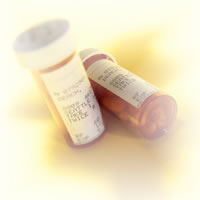|
|
Smart guide for online medicine buyers
|
|

The medicines that sold online can be fake (counterfeit or 'copycat' medicines); can be too strong or too weak, or have dangerous ingredients, or have expired (are out-of-date), or haven't been approved or checked for safety and effectiveness, can be made using non-safe standards, or not safe to use with other medicine or products you use. You have to talk with your doctor and have a physical exam before you get any new medicine for the first time. Use only medicine that has been prescribed by your doctor or another trusted professional. Make sure the site requires a prescription and has a pharmacist available for questions. There are more opportunities today than ever before to learn about your health and to take better care of yourself. It is also more important than ever to know about the medicines you take. If you take several different medicines, see more than one doctor, or have certain health conditions, you and your doctors need to be aware of all the medicines you take. Doing so will help you to avoid potential problems such as drug interactions. Reading the label every time you use a nonprescription or prescription drug and taking the time to learn about drug interactions may be critical to your health. You can reduce the risk of potentially harmful drug interactions and side effects with a little bit of knowledge and common sense. Mixing two drugs together could make one of the drugs ineffective. The combination also could increase a drug's effect, and be harmful. The result might be mild symptoms such as nausea, stomach upset, or headache, or more serious symptoms such as a dramatic drop in blood pressure, irregular heart beat, or damage to the liver-the primary way that drugs pass through the human body. When a drug is taken orally, it usually travels from the stomach to the liver, where it can be metabolized-the process of breaking down and removing chemicals from the body. Enzymes are complex proteins that act as catalysts in starting or speeding up chemical reactions. They cause a specific chemical change in other substances without being changed themselves. The most important enzymes in the liver that metabolize drugs are called the cytochrome P450 family of enzymes. These enzymes break down drugs when they pass through the liver or small intestine. Not everything that happens in a test tube will become meaningful in humans, though. Results from these test-tube studies can tell us whether need to do further testing in people to find out if an interaction is clinically significant. Three phases of clinical trials in humans must happen before a drug can be marketed. Phase 1 studies focus on a drug's side effects and how the drug is metabolized and eliminated from the body. Phase 2 studies focus on a drug's effectiveness. And Phase 3 studies gather more information on safety and effectiveness, which includes using the drug in combination with other drugs. In addition to having a good grasp of drugs and their effects, doctors take medication histories, and they consult with other members of their team to guide them in making decisions about drug interactions. They also use concise drug summaries and resources on pharmacological principles. The large number of drugs on the market, combined with the common use of multiple medications, makes the risk for drug interactions significant. Consumers need to tell doctors what they're taking and ask questions, and health professionals could do a better job at trying to get the information they want. So rather than asking patients what medications they take, doctors should make the questions specific: "Are you taking any over-the-counter medication? Are you taking any herbal treatments or vitamins?" Drug interactions with other drugs includes both prescription and over-the-counter medicines. Tricyclic antidepressants such as Elavil (amitriptyline) and Pamelor (nortriptyline) can interfere with blood pressure-lowering Catapres (clonidine). Taking the antibiotic Cipro (ciprofloxacin) with antacids lowers Cipro's effectiveness. Examples of food with tyramine are cheese and soy sauce. Grapefruit juice should not be taken with certain blood pressure-lowering drugs or cyclosporine for the prevention of organ transplant rejection. Alcohol should not be taken with pain relievers such as Tylenol (acetaminophen) or ibuprofen because of the increased risk of liver damage or stomach bleeding.
European clinic of plastic surgery
|
|
Information on this web page named Smart guide for online medicine buyers and related to Online pharmacy, Pharmacy today is provided for informational purposes only and is not a substitute for professional medical advice. You should not use the information on this web site for diagnosing or treating a medical or health condition of Online pharmacy or Pharmacy today. If you have or suspect you have a medical problem, promptly contact your professional healthcare provider. Talk to your doctor, nurse or pharmacist before following any medical regimen to see if it is safe and effective for you. © Copyright 2007 United Kingdom Women Ring, Pharmacy today area. |
